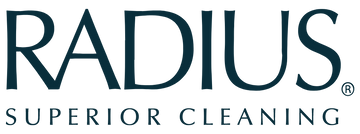It’s time for a side-by-side comparison of toothpaste. Specifically, let’s look at how Organic toothpaste stacks up against all the rest when it comes to a few common ingredients. Is it ‘healthier’? Is it ‘better’? Is it ‘worth it’?
FLUORIDE
There’s a good chance that you were brought up being told that fluoride is a must-have because it can strengthen teeth and make them more resistant to tooth decay. The more that’s learned and researched, the more concerns grow about the health risks fluoride can present. This is especially worrisome for young children. Ingesting too much fluoride can possibly cause permanent tooth discoloration, stomach problems, skin rashes, and impairment in glucose metabolism. Not sure if it’s safe? Wondering about some of the consequences of chemicals in toothpaste you use daily? The FDA requires a warning label on every tube of fluoride toothpaste sold in the US. Warning, there’s a warning for this ingredient - there’s your answer.
There are many iterations and variations of fluoride in toothpaste. For example, Sodium monofluorophosphate is a chemical compound Colgate uses in toothpaste. While its toxicity level is modest, we prefer the non-toxic levels in our RADIUS® USDA Organic Toothpaste.
Is it in RADIUS® Organic Toothpaste? No.
Is it in some of the top popular brands in the US? YES.

About 95% of conventional toothpastes sold in the U.S contain fluoride.
TRICLOSAN
Triclosan, by definition, is a pesticide but historically it’s been used as an antibacterial agent in toothpastes with the claim that it helps fight plaque and gingivitis. It has even been deemed a “super-chemical” because of its down-right frighteningly strong bacteria fighting ways.
Is it in RADIUS® Organic Toothpaste? No.
Is it in some of the top popular brands in the US? No.
The FDA banned triclosan from products like body wash and soap in 2017, and as of 2019 it is no longer commercially available in toothpaste. We point this specific chemical out to call attention to the fact that since 1972, it was an accepted ingredient in consumer toothpaste. For decades a chemical was considered safe, until it wasn’t.

SODIUM LAURYL SULFATE
Sodium Lauryl Sulfate (SLS) and Sodium Laureth Sulfate (SLES) are surfactants that are used in a range of products from industrial cleaners to toothpastes and their main purpose is to provide a foaming lather (aka the stuff you spit out after brushing). Newsflash: foam doesn’t mean clean. Don’t let the foam fool ya. SLS is known to cause irritation, especially for those with mouth sores. When you know you can get the same clean effect without putting an irritant in your mouth every day, go with the NO (the no chemical, no irritant option).
Is it in RADIUS® Organic Toothpaste? No.
Is it in some of the top popular brands in the US? YES.

It’s estimated that about 85% of toothpastes on the market contain Sodium Lauryl Sulfate.
ARTIFICIAL SWEETENERS: SACCHARIN & ASPARTAME
Saccharin is a petroleum-based sugar substitute. It’s sugar produced in a lab, made from crude oil. Saccharin is commonly used in diet foods, soft drinks, lip balms, and you guessed it, toothpaste. It’s approximately 350 times sweeter than your run-of-the-mill sugar and falls into the same sweetener category as Acesulfame-K, sucralose, aspartylphenylalanine methyl ester, alitame and tagatose.
Aspartame is about 200 times sweeter than sugar so you can use less of it to get a similar effect. The issue is that aspartame can convert inside your body to formaldehyde. On top of that, in 2006, it was reported that aspartame is a carcinogen in rats. If it causes tumors and pulmonary lesions in rodents, I think it’s best left out of our children’s (and adult) mouths.
Is it in RADIUS® Organic Toothpaste? No.
Is it in some of the top popular brands in the US? YES.
One reason you will see Saccharin on the ingredient list of a lot of toothpaste brands on your grocery store shelves is because it is cheap. It’s no surprise the cheapest sweetener is the popular sweetener. One way RADIUS® competes is with Erythritol, which, when used in toothpaste, might be a perfect natural sweetener. It’s tooth-friendly, easy on the digestive system, and doesn’t affect blood sugar levels.

If you read the above 3 sections, you know the answer to the question: Is Organic better and healthier for you? Organic means something. In our case, RADIUS® toothpaste is certified USDA Organic, which means it’s made from 98% organic ingredients. No toxic chemicals, no additives, no artificial sweeteners.
IS ORGANIC WORTH IT?
The topic of price over quality is trendier now more than ever, but our take hasn’t changed since day one. We believe that our health and our planet’s health is worth putting in the time to make products better. It’s why we were the first company to make a non-GMO Organic toothpaste. We believe that a truly healthy mouth is the source of a bright smile. We believe in making smiles big and landfills small. We believe we, and future generations, are all worth it.


